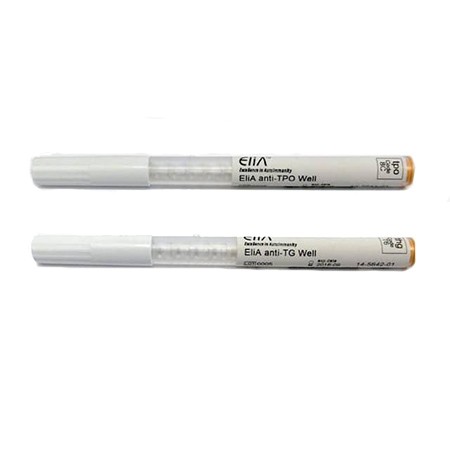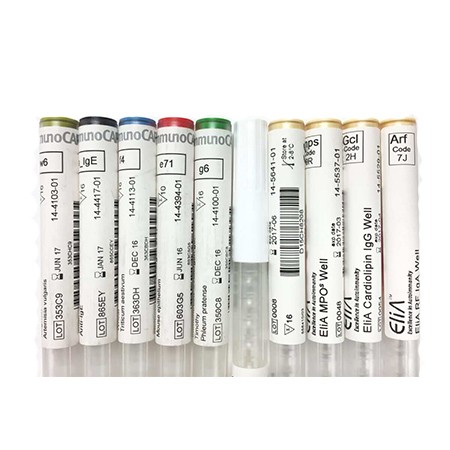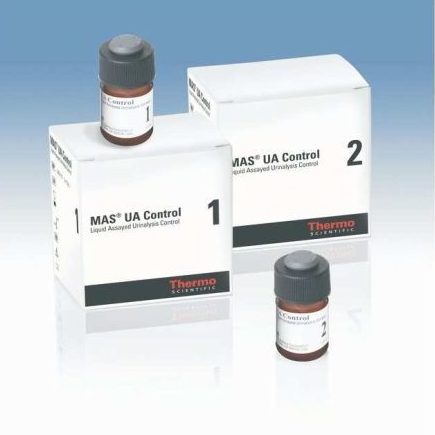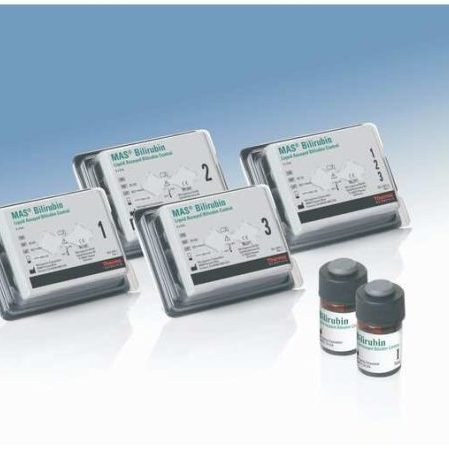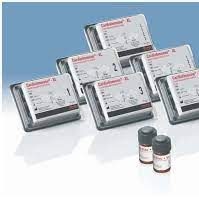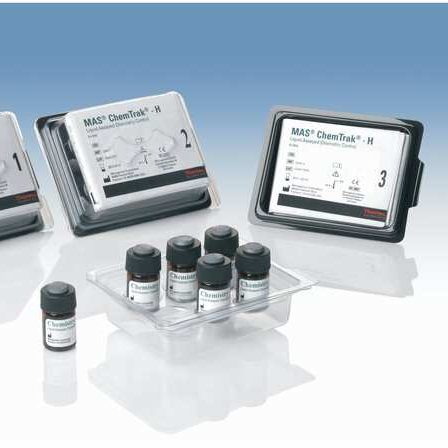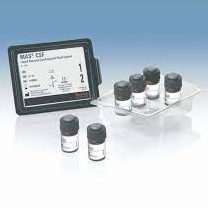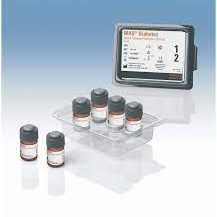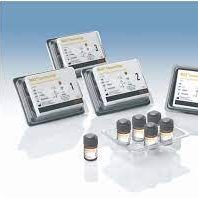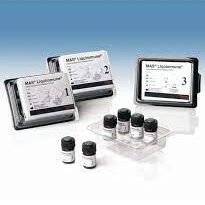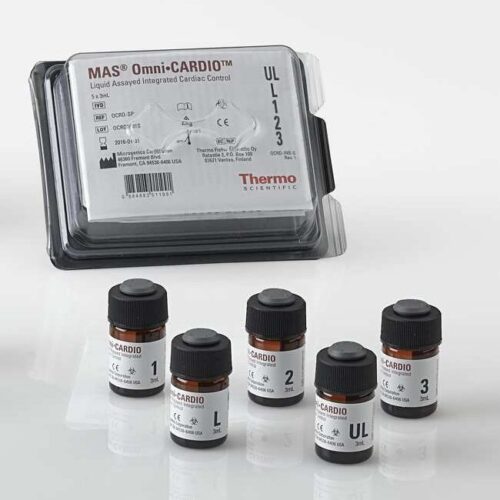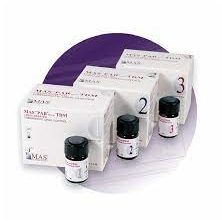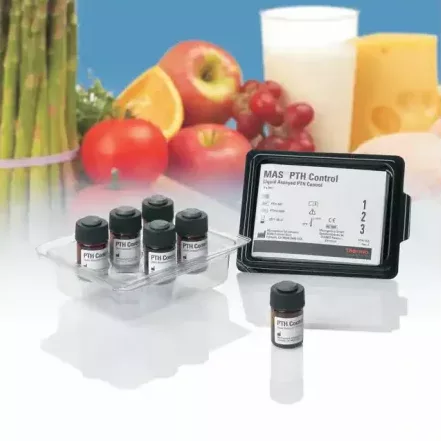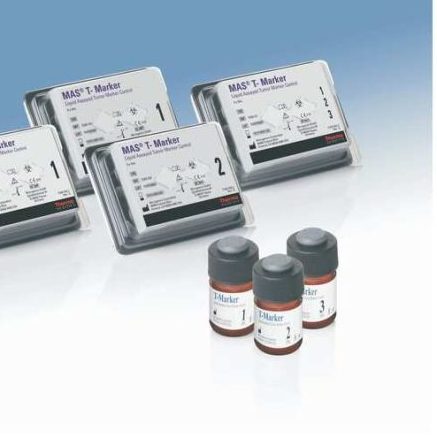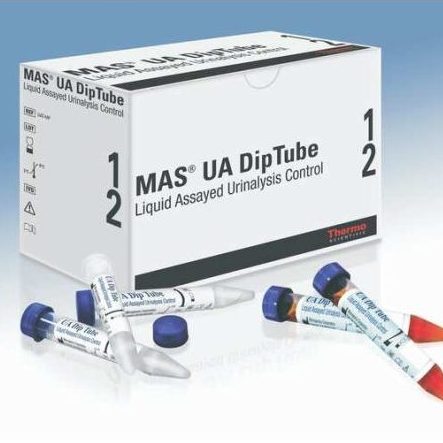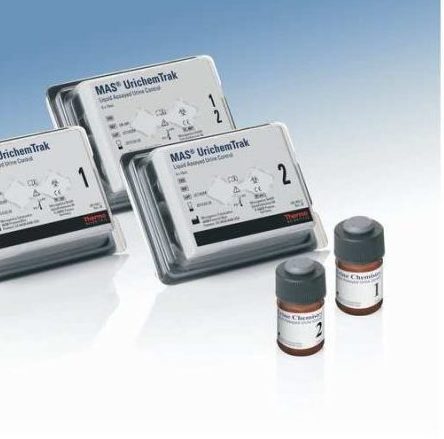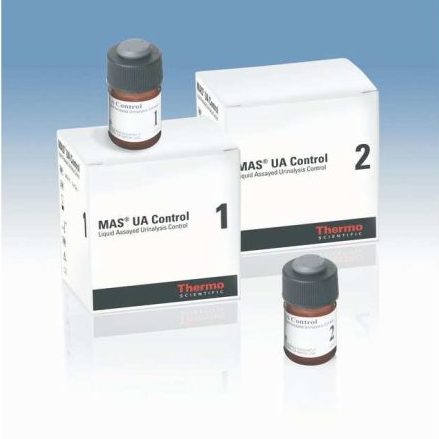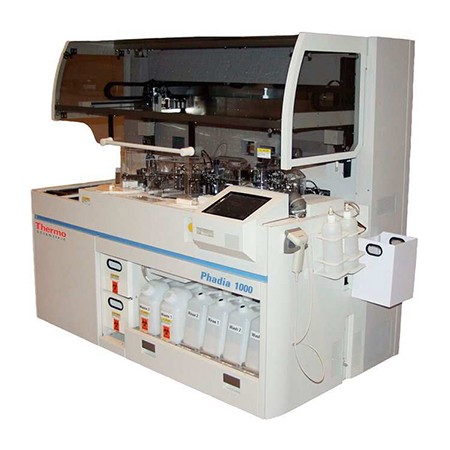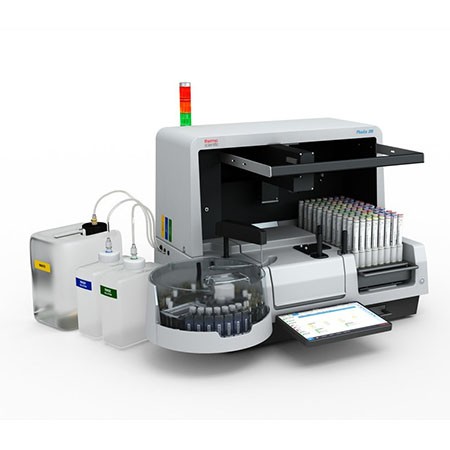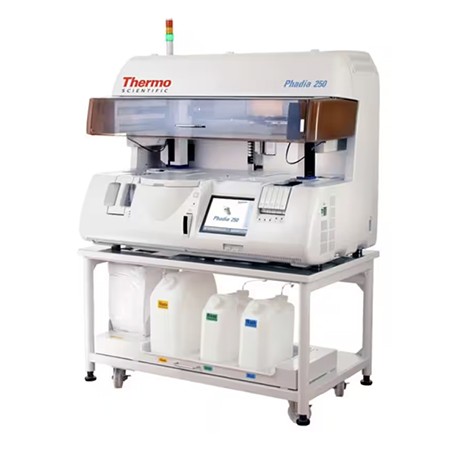-
Broad, expanding portfolio of tests with excellent clinical performance designed to aid in the diagnosis of diseases such as celiac disease, connective tissue disease, and rheumatoid arthritis. Autoimmune disorders are rare and difficult to diagnose. That’s why we have developed more than 57 clinically relevant tests manufactured to help healthcare providers make a better diagnosis and more informed treatment decisions. Our high-quality portfolio of markers comprises tools for the diagnosis of the most frequent systemic and organ-specific autoimmune diseases, including connective tissue diseases, rheumatoid arthritis, antiphospholipid syndrome, vasculitis and Goodpasture syndrome, inflammatory bowel disease, celiac disease, pernicious anemia, autoimmune liver diseases, and autoimmune thyroid diseases. We deliver extensive support that gives you the confidence your lab needs to provide a first-class autoimmunity diagnostic service that puts the patient first.1-6
-
ImmunoCAP Specific IgE Test: Worldwide gold standard in in vitro allergy diagnostics2 designed to aid providers in the diagnosis of allergic diseases including allergic asthma, allergic rhinitis, and food allergies, with more than 550 whole allergens and allergen mixes, and 100 allergen components available. Our mission is to provide clinically relevant and clinically accurate tests and services to enable clinicians to improve the diagnosis and management of patients with allergic disease and asthma. ImmunoCAP™ tests can be run on reliable and automated Phadia™ Laboratory Systems, which feature scalable instrument solutions for different throughput needs.
-
An assayed, bi-level control for monitoring ethanol and ammonia levels in serum.
Analytes:
Ammonia Ethanol -
This assayed, tri-level control has been designed to monitor the performance of total, direct, conjugated, unconjugated and neonatal bilirubin.
-
This multi-analyte control is designed to monitor serum cardiac marker test methods
-
This is a comprehensive multi-analyte control, designed to monitor general chemistry and TDM methods.
-
This liquid assayed diabetes control is a bi-level control designed to monitor hemoglobin A1c methods. Assayed for most major instrument systems.
Analytes:
- Hemoglobin A1c (HbA1c)
-
This multi-analyte immunology liquid assayed control is designed to monitor the performance of various serum protein and serology test procedures
-
This multi-analyte immunoassay control is liquid based and designed to monitor immunoassay test procedures on automated instruments. Provides coverage of fertility, thyroid, iron deficiency, endocrine and allergy parameters.
-
Thermo Scientific™ MAS® Omni•CARDIO consolidates a comprehensive cardiac marker panel with the new generation of STAT analytes including D-Dimer, hCG, Myeloperoxidase and Procalcitonin
-
Thermo Scientific MAS Omni•IMMUNE & Omni•IMMUNE PRO Controls provide consolidation for routine immunoassay, tumor marker and specialty immunoassay QC processing into a single product, offering three distinct levels.
-
This liquid therapeutic drug control is a multi-analyte control with assayed values designed for therapeutic drugs and common immunoassay test procedures on most automated instruments
-
PTH (Parathyroid Hormone) is commonly tested to assess Calcium regulation in blood. The MAS PTH Control offers three distinct PTH levels for evaluation of automated PTH methods across the assay range.
Analytes:
- Parathyroid Hormone (PTH)
-
This liquid, assayed, multi-analyte control is designed to monitor performance of various cancer antigen tests on automated instruments, such as Abbot t Architect ®, Beckman Access/ Dxl®, Ortho Vitros ECi®, Roche Modular Elecsys®, Siemens Advia Centaur ® and Immulite ®, and Tosoh AIA 600II ®.
-
A bi-level control that is liquid and ready-to-use with improved room temperature storage capability. This urine control was designed for monitoring urine dipstick and microscopic components and is assayed for most major reagent strips and strip systems
-
MAS UA product packed into convenient dip tubes to simplify manual testing of urinalysis strips.
-
UrichemTRAK is designed to quantitatively monitor the most commonly tested urine chemistry analytes. This liquid, assayed control is ready-to-use, requires no additional preparation and the non-azide formulation will not interfere with ISEs
-
A bi-level urine control designed for monitoring urine dipstick and microscopic components. This liquid control is assayed for most major reagent strips and strip systems.
-
The Phadia 1000 instrument is dedicated to aid in the diagnosis of allergic diseases Random access immunoassay system Peak Capacity: Max throughput 240 results/hour On Board Carrier Storage: 600 Remote Support: Phadia LabCommunity Connectivity: Laboratory Information System (LIS), Phadia LabCommunity, Phadia Prime Cluster, selected Laboratory Automation Systems (LAS) Dimensions (H/W/D): 215x183x105 cm
-
A small footprint. A big step forward in benchtop automation. The Phadia™ 200 instrument is the smallest of our fully automated instruments—small enough to fit on a benchtop, and yet capable of running the complete menu of more than 700 different ImmunoCAP™ and EliA™ tests to aid in the diagnosis of allergy and autoimmune diseases. Fits any workflow The Phadia 200 instrument fits any workflow, allowing you to retain control of your own samples, increase your testing flexibility, and improve operational efficiencies through instrument automation. It provides a simple way to easily expand the range of tests you offer and the number of tests you run, in limited space, with little training time and with the same high-quality, quantitative results you can expect from any of our Phadia™ Laboratory Systems.
-
Phadia™ Laboratory Systems are platforms specifically designed for diagnostic testing. These scalable systems, made to fit your laboratory needs today and into the future, aid in the diagnosis of allergy and autoimmune diseases. Networking multiple instruments together means they can adapt to your specific workflow needs, delivering results into your Laboratory Information System (LIS) and into the hands of clinicians. All Phadia™ instruments can run the latest Phadia™ Prime software, so as your laboratory operations grow, you can easily incorporate additional Phadia instruments into your network to meet different throughput needs and ease the load. Join the Phadia Laboratory Systems product family and enjoy all the benefits of being a member of the world’s largest, most integrated group of users for testing within allergy and autoimmunity disease areas. The PhadiaTM 250 instrument proves its reliability every day at laboratories around the world Random access immunoassay system Peak Capacity: Max throughput 60 results/hour On Board Carrier Storage: 180 Remote Support: Phadia Labcommunity Connectivity: Laboratory Information System (LIS), Phadia LabCommunity, Phadia Prime Cluster, selected Laboratory Automation Systems (LAS) Dimensions (H/W/D): 186x127x75 cm
-
Ideal for use outside the clinical laboratory where refrigerated storage isn’t always available. The Sentry Urine Dipstick Control offers 12 months room temperature stability for an immediate, ready to use urinalysis strip control.
